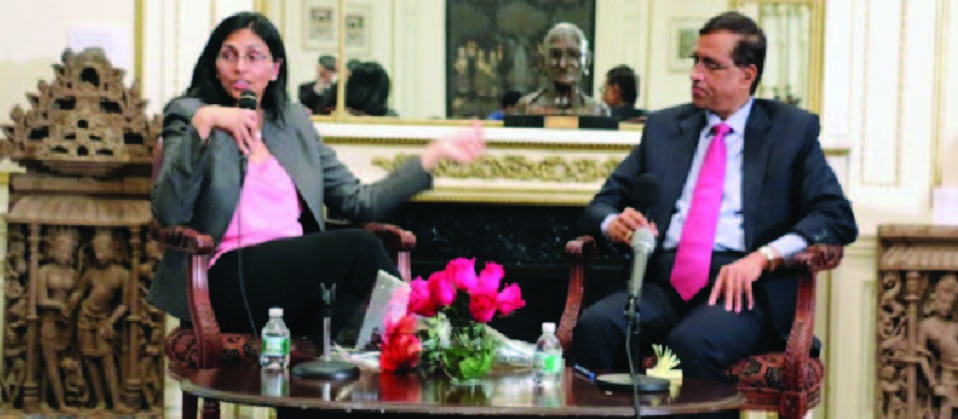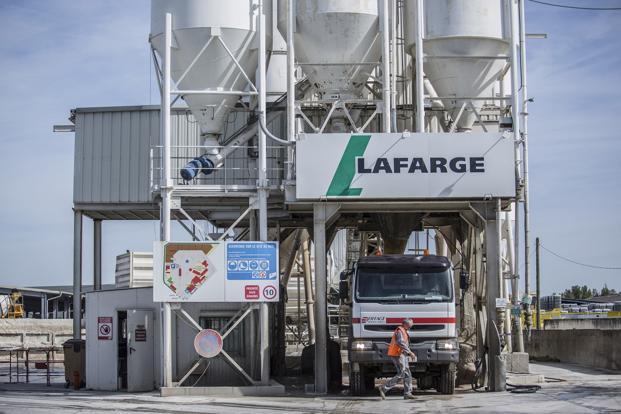
NEW YORK (TIP): US Assistant Secretary of State for South and Central Asian Affairs Nisha Desai Biswal said that before Indian Prime Minister Narendra Modi‘s second visit to the US in September, it will be a ‘very intense time’ and ‘moment of intense observation’ for US-India relations. She made the remark during a lecture in the Media India lecture series at the Indian Consulate in New York, August 4.
Speaking on “Vision of India-US Relations in the coming years and its strategic significance in the global context” Biswal said that the US is very much looking forward to Narendra Modi’s second visit to the country next month.
“We are very much looking forward to Prime Minister Modi’s return visit to New York as well his visit to Silicon Valley. There is a lot of excitement that the potential of a technology partnership between our two countries can really bring about a new growth model that focuses on innovation, technology to usher in cleaner, more efficient, sustainable and inclusive models of growth for both countries”, she said.
She said California is “abuzz with anticipation and excitement” over the tremendous opportunity Modi’s visit to the state brings.
“There is a lot of excitement that the potential of a technology partnership between our two countries can really bring about a new growth model that focuses on innovation, technology to usher in cleaner, more efficient, sustainable and inclusive models of growth for both countries,” she said.
She noted that during her visit to Silicon Valley last week, she noticed that entrepreneurs, scientists and investors are very focused on how to find new paths to partnership between the two countries are looking at new technologies that will power solutions to the big challenges.
“India is a development laboratory for very cutting edge new ways of tackling old challenges,” she added.
Noting that two-way trade has tripled in the past decade from $36 billion in 2005 to over $100 billion in 2014-15, Biswal highlighted the incredible potential between India and the US to increase bilateral cooperation across a range of sectors including defense sector and space science and stressed that the two nations have a “core strategic interest” in each other’s economic prosperity. “If you look at the ambitions of the American President and the Indian Prime Minister in terms of where they want to go with this relationship, I think it has charted a very ambitious path and the past year of engagement between our two leaders and between the two governments is indicative of the deep value that each places on this relationship.”
She also stressed that there should be more trade architecture between two countries to help create platforms for advancing common goals and to create a framework for addressing areas of difference. “We recognize that a strong and prosperous India will be a stronger partner regionally and globally as we tackle common challenges and strive to achieve shared goals,” she added.
In reply to a question on Khobragade issue from PTI Reporter, Nisha said that it was a “painful period for bilateral ties”, and added that the incident has led to “important learnings” and there is a determination to avoid such instances.
“Both governments learned some important lessons and we achieved some important understandings and clarity in how to operate in each others’ systems, with more clarity to the expectations that we each have of the other,” she said.
Khobragade, a former Indian deputy consul general here, was arrested in December 2013 on charges of visa fraud. The charges were rejected by her. Her arrest and mistreatment resulted in a major diplomatic row between India and the US.
India took several retaliatory measures like reducing the diplomatic privileges of American diplomats in the country and bringing it at par with what Indian diplomats get in the US.
Biswal further said, following the episode, there are things that the US has tried to do differently in terms of its officials in India.
“We had very important learnings that came out of that episode. There is a determination to avoid such instances,” she said, adding that both India and the US work in “complex and highly regulated environments.”
“We have very robust and open societies and so it is going to be complex in managing all of the different aspects of this relationship,” she said.
There will be times when things go wrong, when some American official could violate rules and regulations and “we will have to deal with it and vice versa”, Biswal said.
She said the countries have to learn how to operate within each others’ walls and it gets “complicated” at times but a part of the business of diplomacy is navigating the complex issues.





Be the first to comment